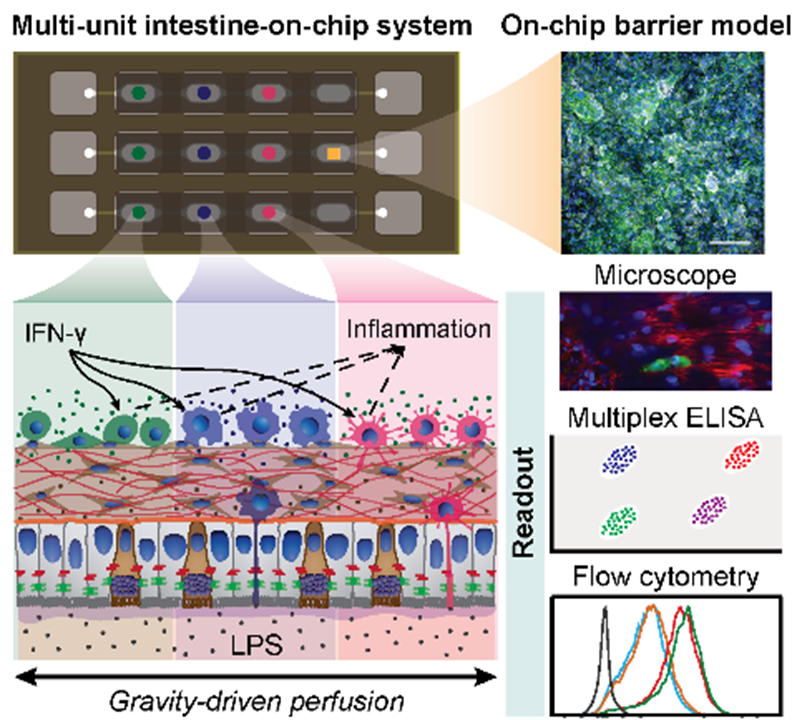Versatile intestine-on-chip system for studying inflammatory bowel disease
Novel intestine-on-chip microfluidic system for in‑vitro recapitulation of intestinal barrier. System enables simultaneous multiparameter investigations of role of different immune cell types through high-resolution microscopy, analysis of cell surface markers, and chemo/cytokine profiling.


The multifactorial nature of inflammatory bowel disease (IBD) necessitates reliable and practical experimental models to elucidate its etiology and pathogenesis. To model the intestinal microenvironment at the onset of IBD in vitro, it is important to incorporate all relevant cellular and non-cellular components before inducing stepwise pathogenic developments. Oanh Nguyen et al. developed a novel intestine on chip system for investigating multiple aspects of IBD’s immunopathogenesis as published in "A Versatile Intestine-on-Chip System for Deciphering the Immunopathogenesis of Inflammatory Bowel Disease", Advanced Healthcare Materials 2024, DOI: 10.1002/adhm.202302454).
The system includes an array of tight and polarized barrier models formed from intestinal epithelial cells on an in vivo-like subepithelial matrix. The system design enabled introduction of various immune cell types and inflammatory stimuli at specific locations in the same barrier model, which enabled investigations of the distinct roles of each cell type in intestinal inflammation development. Inflammatory behavior was shown to be manifested in an upregulated expression of inflammatory markers and cytokines. The neutralizing effect of the anti-inflammatory antibody Infliximab was explicitly shown. Overall, the presented work constitutes an innovative approach to systematically developing microphysiological systems to investigate immune-system-mediated disorders of IBD and to identify new therapeutic strategies.
